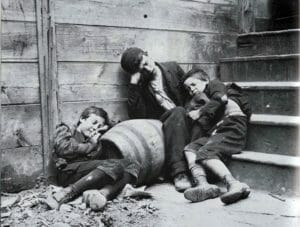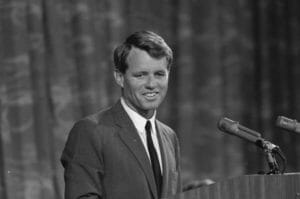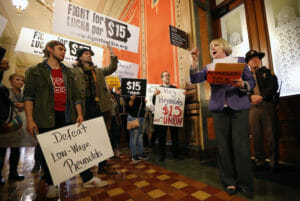Here’s Why Black History Must Be Remembered All Year Long
As the rest of the nation celebrates Black History Month, this February I’m taking a graduate-level course I call “Dead White Men.” Silver Shine / CC BY-SA 2.0
Silver Shine / CC BY-SA 2.0
By Jill Richardson / OtherWordsThis piece originally ran on OtherWords.
As the rest of the nation celebrates Black History Month this February, I’m taking a graduate level course I call “Dead White Men.”
It’s actually a classic theory class that covers a number of influential thinkers, like free market theorist Adam Smith and the famous French observer of American democracy, Alexis de Tocqueville.
It’s a good class. But the thinkers we’re studying are all dead white men.
In fact, they weren’t just white and male. They were all members of an elite that was rich and formally educated.
There’s nothing inherently wrong with that: They were all great thinkers, and their contributions to human knowledge are indisputable. But their views of the world were developed based on their unique positions in society. As a result, they had some easy-to-recognize blind spots.
What’s missing in the canon of classic literature taught in the United States are the views of everyone else who built our nation: African Americans, Native Americans, Latinos, Asian Americans, and so on.
How would the theories we use to understand our economy, government, and society differ if we’d recorded the thoughts of marginalized people along the way?
For example, in The Wealth of Nations — the seminal book that defines capitalism — Adam Smith asserts that the poor factory workers living in England during the Industrial Revolution had better lives under capitalism than even a wealthy African prince.
Those factory workers, however, were living in squalor, in utter misery. From his vantage point, not experiencing it himself, Smith didn’t seem to think it was that bad.
Smith goes on to describe how individuals each act in their own self-interest. Without any mastermind in control, that lets the free market work as though it were steered by an “invisible hand.” The role of government in aiding the capitalist economy, according to Smith, is minimal.
Here, he misses the enormous role of the British Empire.
During the Industrial Revolution, Great Britain exported wheat from its colony India even during famines, causing millions of Indians to starve to death. Cotton came from the United States and sugar from colonies in the Caribbean, nearly all of it produced by enslaved Africans and their descendants. Not to mention that the original inhabitants of the New World that produced this bounty were largely driven off their land by colonial governments.
Some “invisible hand.”
That doesn’t necessarily nullify the conclusions Smith made, but it shows a hole in his theory that’s never accounted for. We tend to accept Smith’s ideas as they are, without noting this flaw or analyzing how it might make his ideas inaccurate in any way.
What if instead, the United States elevated the perspectives of the non-white peoples who were marginalized, enslaved, and exploited to the same prestige enjoyed by white writers like Smith? Wouldn’t we all better understand how the world works — and how to make it work better?
To some extent, of course, this is impossible. Many black and Native American contemporaries of Smith, or even poor whites, were illiterate, and they’re now long dead. But surely we can begin to recognize and correct our mistakes now.
Relegating black history to just one month of the year — and treating it as if it’s something separate from American history more broadly — does a disservice to us all. It reinforces the wrongheaded idea that we’re a white nation, and that the history of other people is only a part of our own insomuch as it affects whites.
It’s great to have a month highlighting black history and the achievements of African Americans. But if any of us, regardless of race, wish to fully understand our own history as a people, then black history must be included on a level playing field with white history — all year long.
Your support matters…Independent journalism is under threat and overshadowed by heavily funded mainstream media.
You can help level the playing field. Become a member.
Your tax-deductible contribution keeps us digging beneath the headlines to give you thought-provoking, investigative reporting and analysis that unearths what's really happening- without compromise.
Give today to support our courageous, independent journalists.







You need to be a supporter to comment.
There are currently no responses to this article.
Be the first to respond.